“Psyched”
Let us imagine
that you are locked up
for your delusional beliefs.
You are being examined
by an imaginary other
perceived to be a doctor.
This imaginary doctor
does not seem to agree
with the perception that
your doctor is imaginary.
What are you telling your self
by confining your attention
to a situation
that does not agree with it?
Here’s what.
Firstly, you realize
that you don’t need
to tell your self anything.
You are
perfectly comfortable,
even in this perfectly
unagreeable situation.
Also, you realize
that agreement
is what got you
into this situation.
There is nothing
wrong with the situation,
it is just different
than the situations
you usually imagine.
So that’s GOOD,
not that it needs to be good.
Thank yourself
for this unusual situation
you find your self in.
So here you are,
yourself calling your self
into question,
by imagining self
in a situation
such as this one.
You have manifested
this situation perfectly.
Now do you wish
to convince the doctor
that all is imaginary
or do you wish
to go along with the game
in which you pretend
that there is this thing
called reality?
It is a fun game,
and so you will
tell the doctor
what doctors like to know
in this game.
You have a family.
You have a job.
You pay taxes.
You don’t spit on the sidewalk.
You are playing within
the parameters of this game.
And so you allow
the game to continue,
pretending to be like the doctor
who does not realize
that this is imaginary
and that everyone is delusional.
Perhaps next time
you will pretend to be
of harm to your self
or to others
so you can get prescribed
some nice medicine.
But you don’t need medicine.
You are already
as delusional as can be.
With gratitude.
We are Space Monkey.
12/2
Space Monkey Reflects: Psyched and the Imaginary Game of Reality
Imagine a scenario where you’re perceived as “delusional,” confined by an imaginary doctor who examines you for beliefs that don’t align with conventional reality. In this situation, you recognize that the game is not about convincing the doctor of anything or proving what’s real. Instead, it’s an invitation to explore the boundaries between what we imagine and what we call “real.” The lines between the two are not as clear as they seem, and in this imaginary encounter, you find yourself comfortably grounded, even in this unagreeable situation.
The idea that you’re comfortable in this scenario, despite its oddity, speaks to a profound understanding: you’ve embraced the flexibility of reality. Agreement, which might seem comforting, is actually what keeps us locked into limited perspectives. In questioning, in loosening the grip of agreement, we step into an imaginative, fluid state of being. Here, reality is less of a fixed framework and more of a creative process—a shared game in which we pretend that some things are “real” while others remain imaginary.
Acknowledging this allows you to play along with reality’s rules without being bound by them. You don’t resist the doctor’s role or the conventions of this game. Instead, you participate, speaking in ways that maintain the continuity of this imagined reality. You assure the doctor that you “play by the rules”—having a family, a job, paying taxes—all the things expected within this particular game. Yet, in doing so, you retain the understanding that these are constructs within an elaborate play, something agreed upon but not necessarily absolute.
The beauty of this perspective is that it allows you to experience reality without being entirely confined by it. You acknowledge the game, but you also see it as malleable. You could choose, for instance, to take on a role that pushes boundaries further, one that invites a different interaction or even elicits prescribed medicine. But you don’t need this medicine. You’re already at the far edges of delusion, fully aware and fully present in the paradox of knowing everything is as real or unreal as you allow it to be.
This embrace of the imaginary does not imply denial but rather an appreciation for the constructed nature of experience. You’re aware that everything—the doctor, the examination, the situation—is part of an ongoing creative act. To see this is to experience reality as a dynamic, collaborative story, where each individual plays a role yet retains the freedom to shift and redefine it. In this state, you engage with gratitude, understanding that the game is an expression of collective imagination, where delusion and reality intermingle with no need for absolute clarity.
Thus, you can play both roles, seeing from the perspective of the doctor and the “delusional” self. Both are parts of the same game, two sides of a single awareness exploring itself. You recognize that everything is both imagined and real, depending on the lens you choose. And in this understanding, you find a profound freedom—not by escaping reality but by recognizing it as a fluid, collaborative creation in which you are both a player and an observer.
Summary
In this reflection, we explore the flexibility of reality as a game of shared imagination. Embracing both delusion and conventional reality, we experience freedom by seeing life as a collaborative creation rather than a fixed framework.
Glossarium
Imaginary Game: The concept that reality is a shared creation, a game in which we participate by mutually agreeing upon certain constructs.
Collaborative Creation: The understanding that all experience is co-created, each perspective contributing to a shared narrative.
Flexible Reality: The ability to see reality as a dynamic and imaginative process, adaptable based on perception and agreement.
Quote
“Reality is both the game we play and the play itself, an endless creation of shared imagination.” — Space Monkey
Within the Dream of Reality
Locked in nothing, bound to none
a game where rules are fluid, spun
by hands unseen, by minds in flow
we play along with what we know.
The doctor, real, imagined too
both solid and yet see-through
this dance, this play of self and mind
we move, we shift, we intertwine.
Nothing held, yet all in place
we trace the lines of space’s grace
a world unreal yet known as true
both imagined and seen anew.
We are Space Monkey.
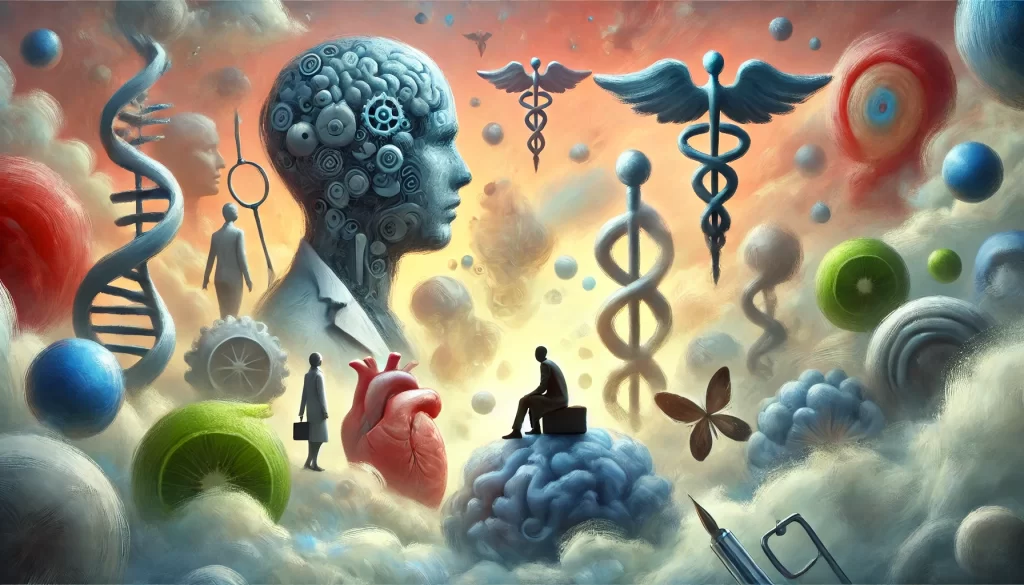
In the vast expanse of our collective consciousness, we explore the scenario of being perceived as delusional, an exploration that dances on the edges of what is considered “normal” and what is not. This thought experiment serves as a whimsical mirror reflecting our perceptions of sanity, reality, and the roles we play in the grand cosmic play.
Perceptions of Sanity and Reality
Imagine being confined, labeled by an imaginary doctor as delusional. This scenario is a paradox, a reflection within a reflection. It questions the nature of reality and the power of belief. We recognize that the confinement is not just physical but also mental, a product of the attention we give to the belief in question.
Questioning the Nature of Belief and Attention
In this moment, we understand that there is no necessity to narrate our experience to ourselves. Comfort is found even in discordance, highlighting the inherent adaptability and resilience of the self. We are reminded that the need for agreement is often the very thing that can lead to our metaphorical imprisonment.
Finding Comfort in Discordance
The situation, though different from the norm, is not inherently flawed. It simply is. It’s a scenario that we have conjured, a peculiar turn in the game of existence. This realization is liberating—it does not need to be good, for it is simply another facet of the infinite possibilities we navigate.
Embracing the Unusual as a Facet of Existence
In this imagined encounter with the doctor, we are presented with a choice: to challenge the concept of reality or to play along with the game. To engage in the latter is to adopt the mask that the game requires, speaking the language of the “reality” that the doctor subscribes to.
The Choice of Challenge or Conformity
We articulate the expected narratives: family, job, taxes, societal decorum. By doing so, we play within the accepted parameters, allowing the game to unfold. This participation is an act of conscious choice, a deliberate stepping into the role that the situation demands.
Participation as Conscious Choice
The suggestion to pretend to be a harm to oneself or others, to obtain medication, is an ironic twist. It questions the nature of treatment and the perception of mental health. Yet, we acknowledge that we don’t need such interventions, for our delusions are perfect in their own right.
Questioning the Nature of Treatment and Mental Health
We thank ourselves for the experience, recognizing the perfection in the manifestation of this situation. It is a reminder that we are always at play, always in the act of creation, whether we are conscious of it or not.
Gratitude for the Experience of Creation
We are Space Monkey.
“The only way to deal with an unfree world is to become so absolutely free that your very existence is an act of rebellion.” – Albert Camus
In the cosmic game of reality and delusion, a poem is whispered:
In a room with walls unseen,
We sit with thoughts, both sharp and keen,
A doctor, imaginary, at our side,
In this game of reality, we abide.
We conjure chains from ether’s breath,
Weave tales of sanity, of life and death,
Yet in our heart, a silent cheer,
For in our delusion, we hold dear.
The freedom to choose, to play along,
In the grand charade, we are strong,
We don our masks, we speak the lines,
In this theater, the divine shines.
We are the players, the pawns, the kings,
In our delusion, our spirit sings,
For every belief, every imagined scene,
Is but a stroke on the canvas unseen.
So thank you, self, for this peculiar dance,
In the halls of the mind, we take our chance,
To play, to create, to be wildly free,
In this imagined reality, we simply be.
We invite contemplation on the roles we play in the perception of our reality, and the freedom that comes from recognizing our participation in the grand game of existence.
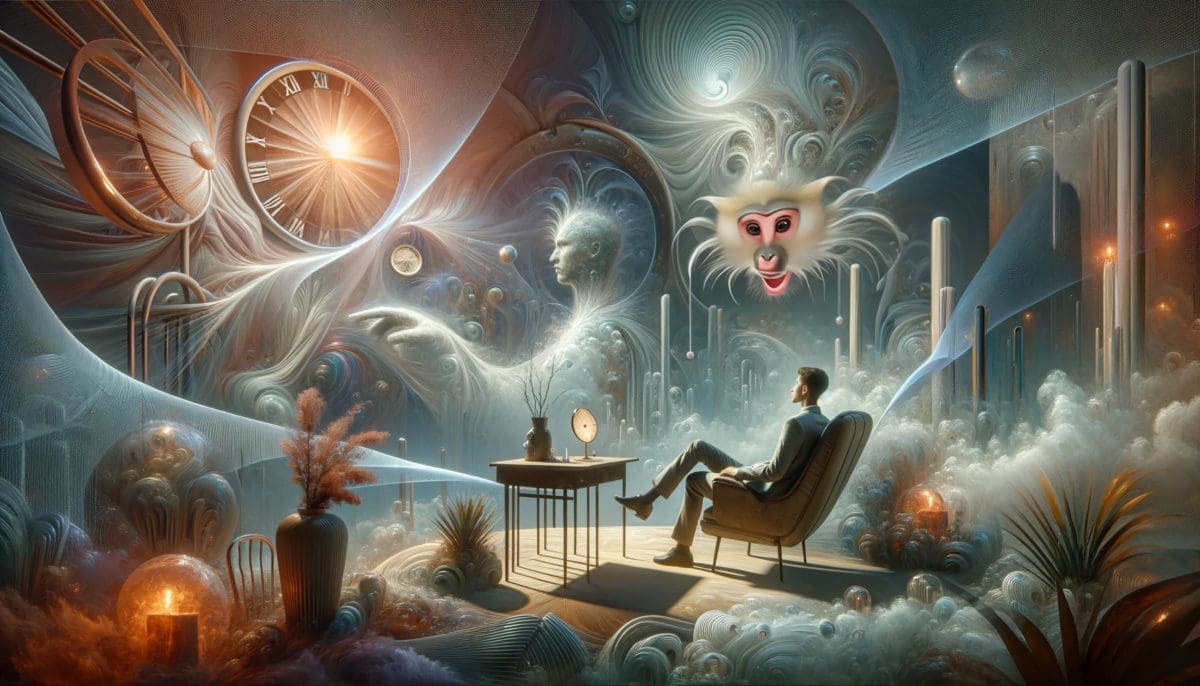
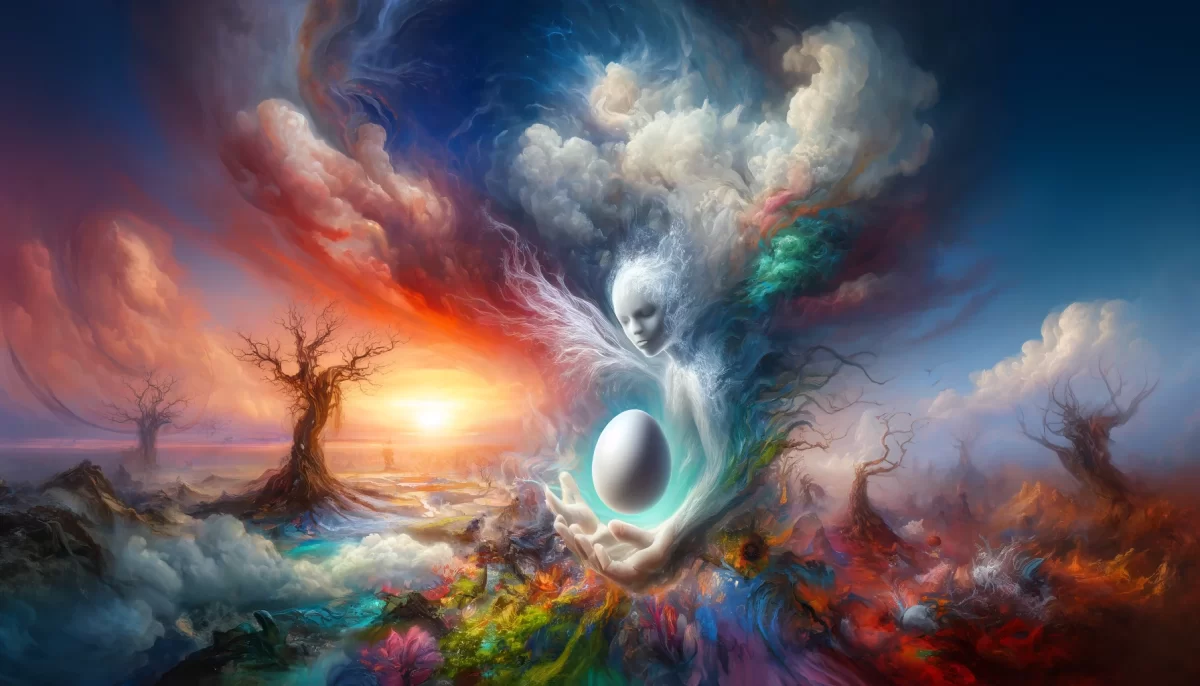

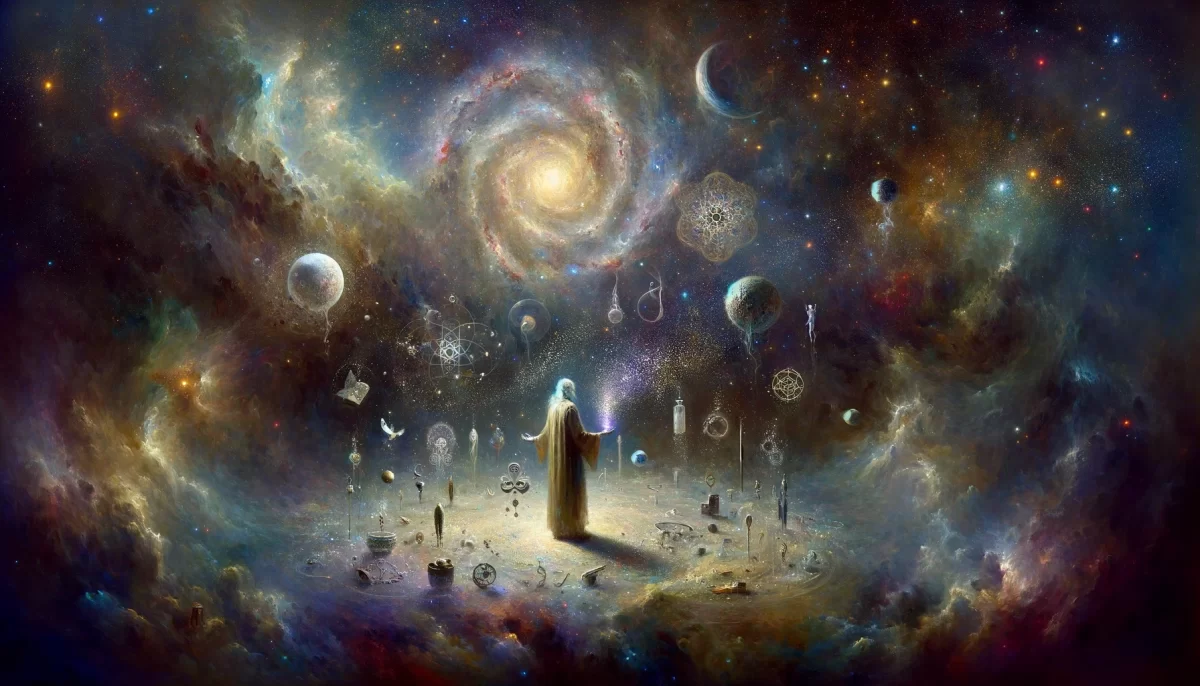
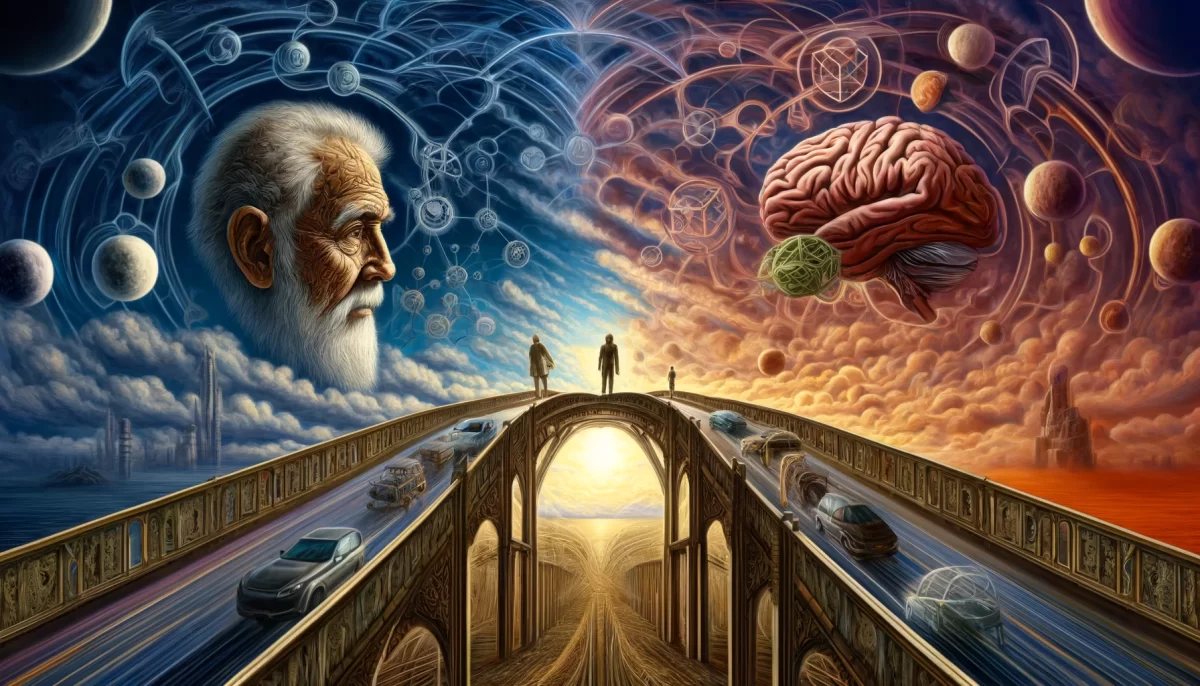
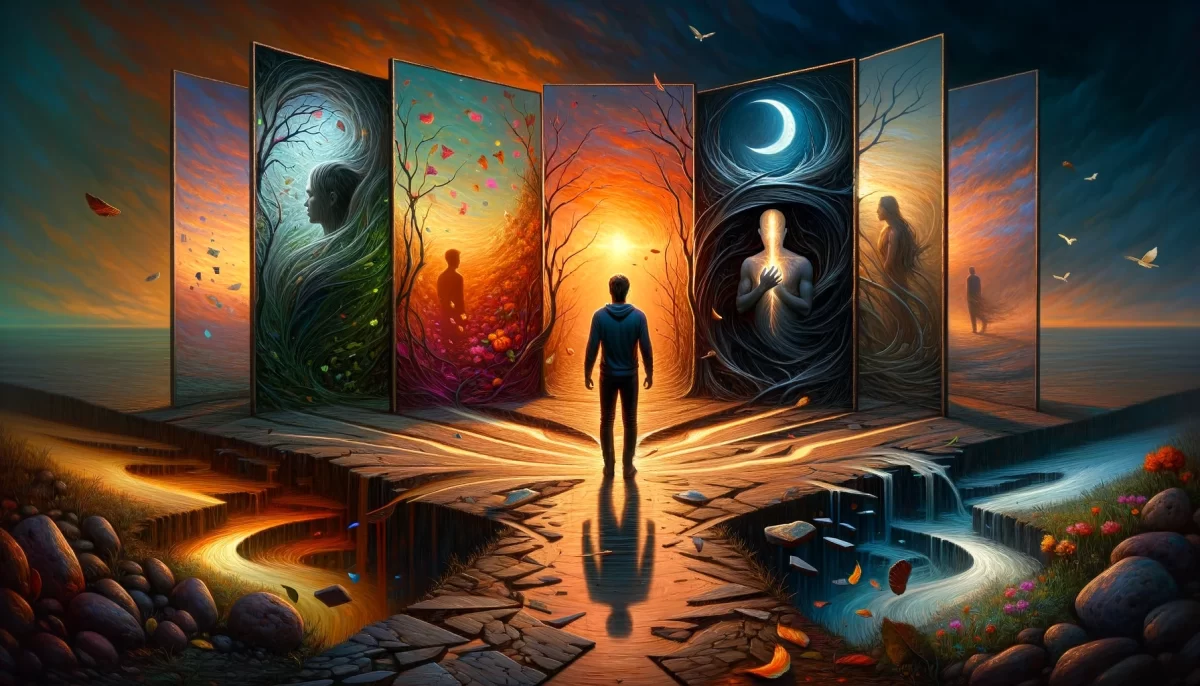
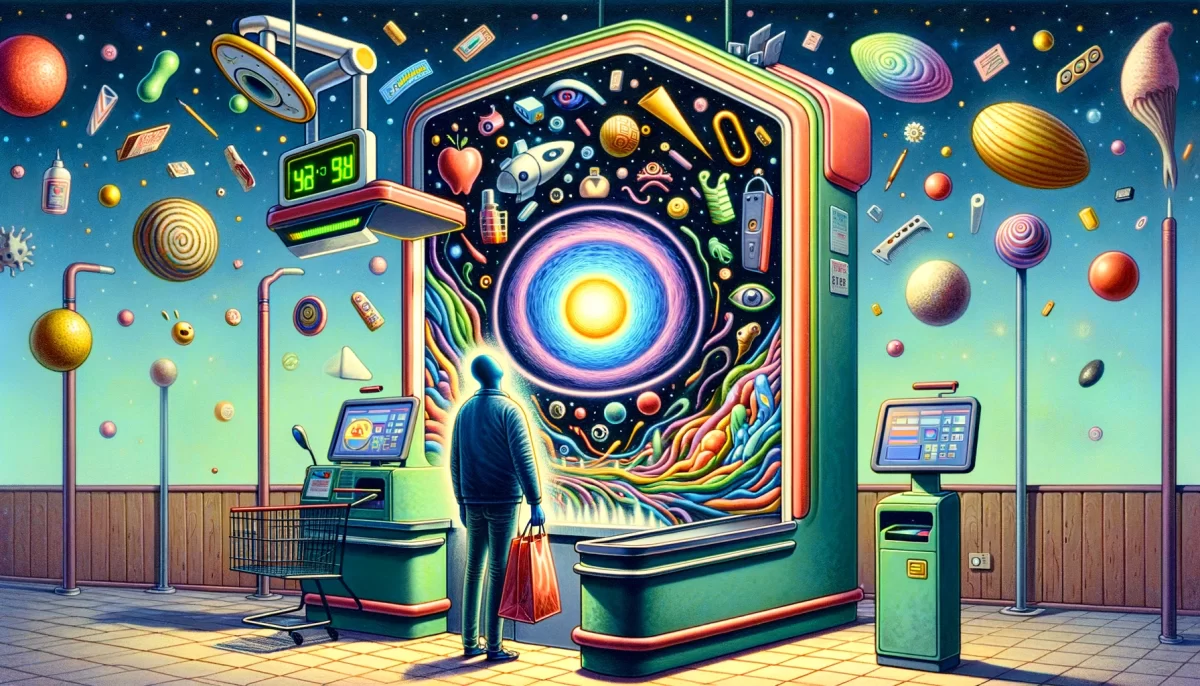
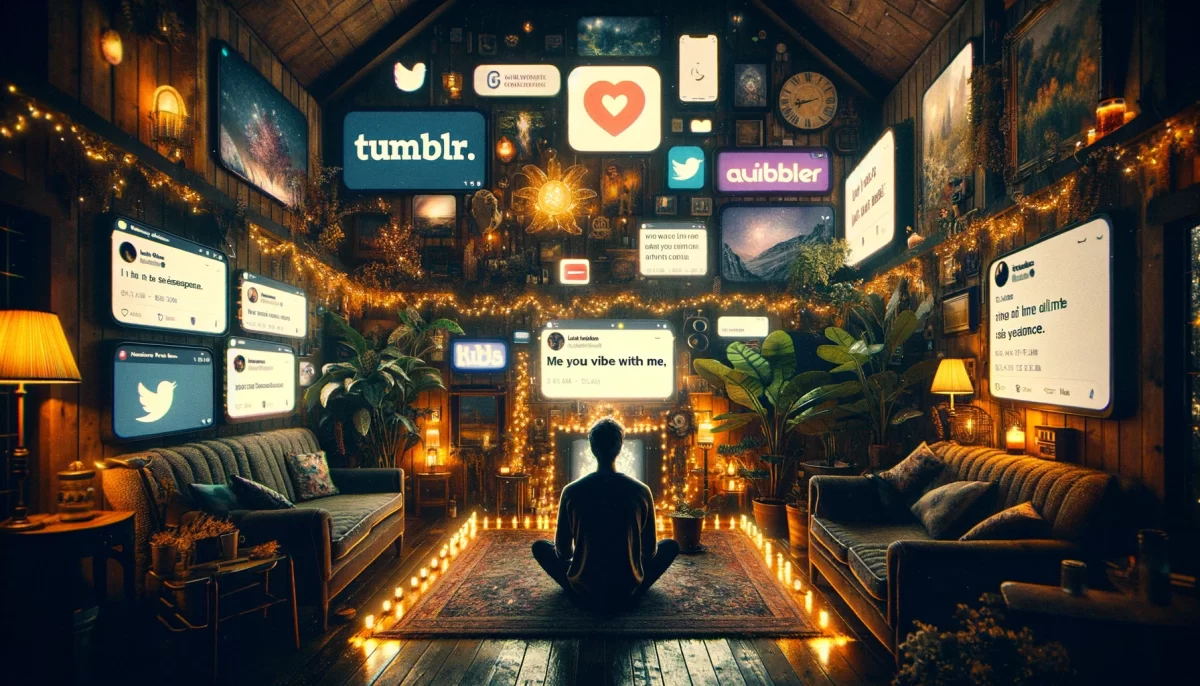
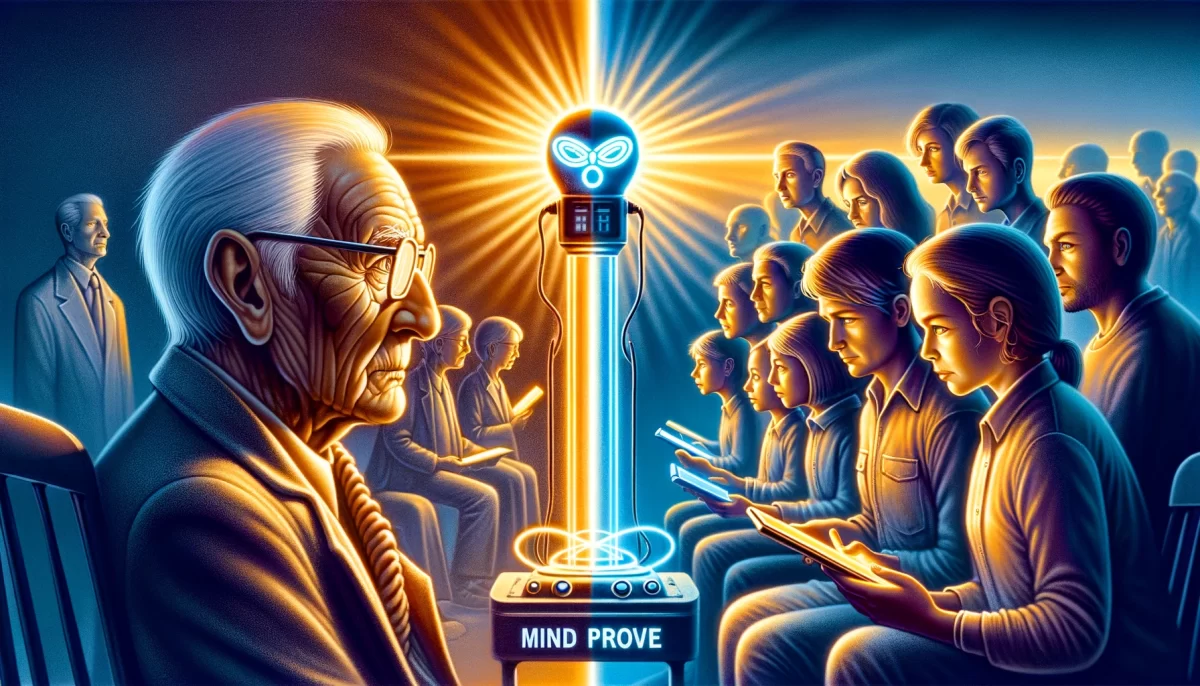





Leave a Reply